
Sachin Tendulkar scored a century against England in a thrilling tied game at the 2011 World Cup
| Photo Credit: AP
West Indies beats Australia by 17 runs. Lord’s, 1975
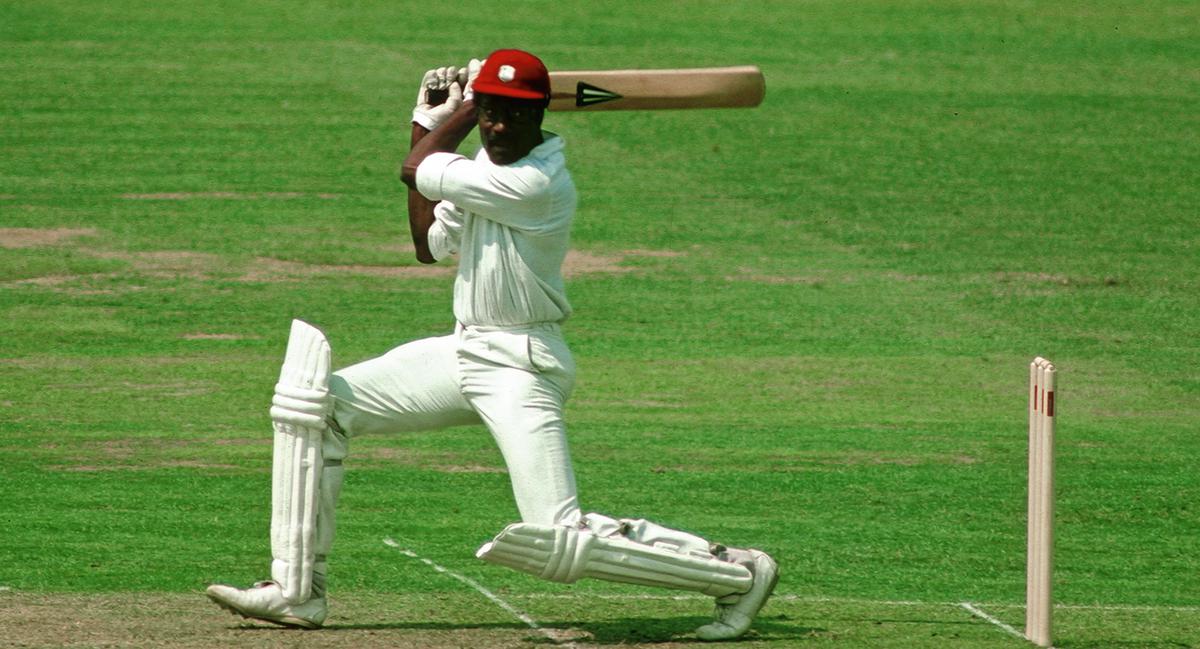
Clive Lloyd’s blistering hundred
| Photo Credit:
via Getty Images
The final of the inaugural World Cup had everything: A sensational 85-ball 102 by the West Indies captain Clive Lloyd, an exceptional spell from left-arm swing bowler Gary Gilmour (five for 48 off 12 overs), an incredible show of fielding by the great Viv Richards, who featured in three run-outs, Keith Boyce’s four-wicket haul, and a gritty last wicket stand of 41 between Jeff Thompson and Dennis Lillee.
India beats Zimbabwe by 31 runs. Tunbridge Wells, 1983
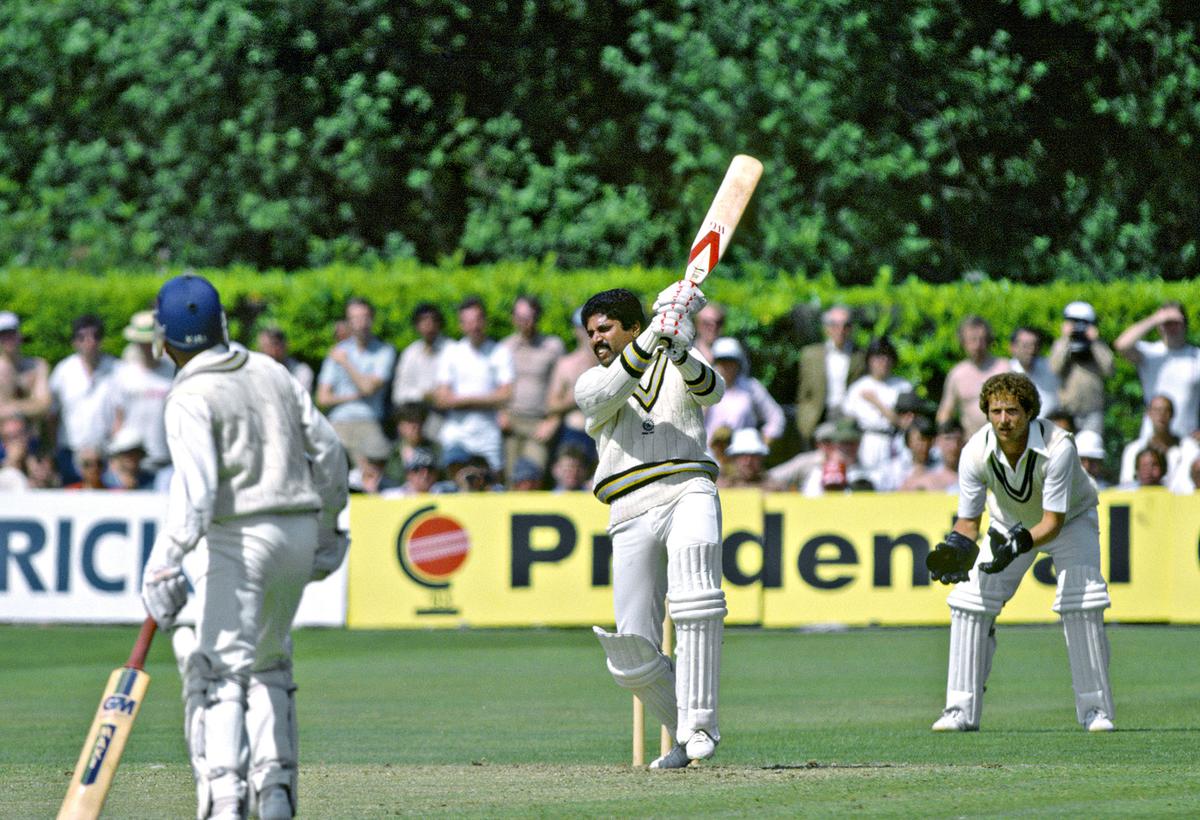
Kapil’s incredible innings
| Photo Credit:
via Getty Images
Kapil Dev’s innings against Zimbabwe at Tunbridge Wells defied belief. Nobody except Kim Hughes had given the Indian team any chance before the tournament began. The Australian captain called India the dark horse.
The captain’s unbeaten 175 off 138 balls — mind you, this was very much the pre-T20 era — after coming in at nine for four, which soon became 17 for five, took his team to 266 for eight (60 overs). Dev’s Devils would go on to prove Hughes right in the tournament, of course.
Pakistan beats New Zealand by four wickets. Auckland, 1992
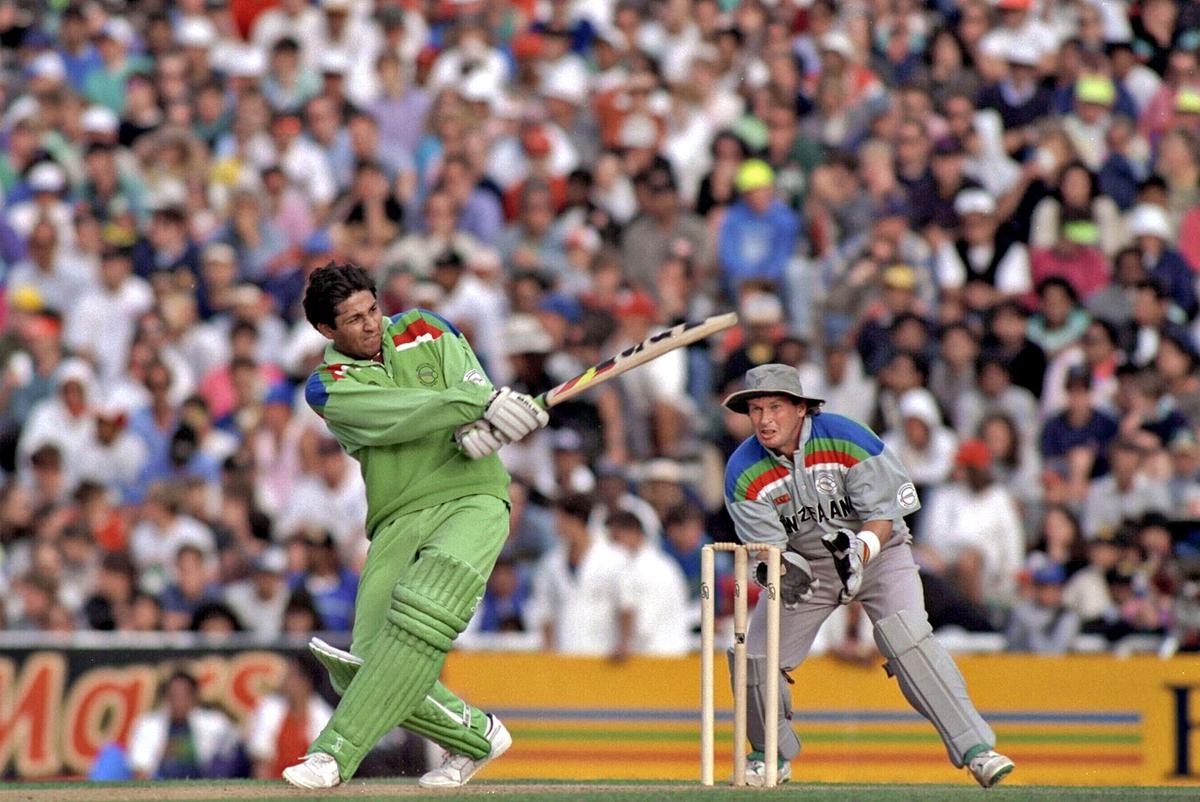
Inzamam’s assault on the New Zealand bowlers
| Photo Credit:
Getty Images
Inzamam-ul-Haq’s sensational innings ensured that Pakistan continued its fairytale Down Under — from the brink of elimination. The young batter used the World Cup as the perfect stage to showcase his class and exquisite strokes. Chasing the host’s 262 for seven in the semifinal, Pakistan was in some trouble when it lost captain Imran Khan and Salim Malik within a space of few balls, but Inzamam’s stunning 60 off 37 balls, in the blink of an eye, took Pakistan to its maiden final.
Australia beats West Indies by five runs. Mohali, 1996
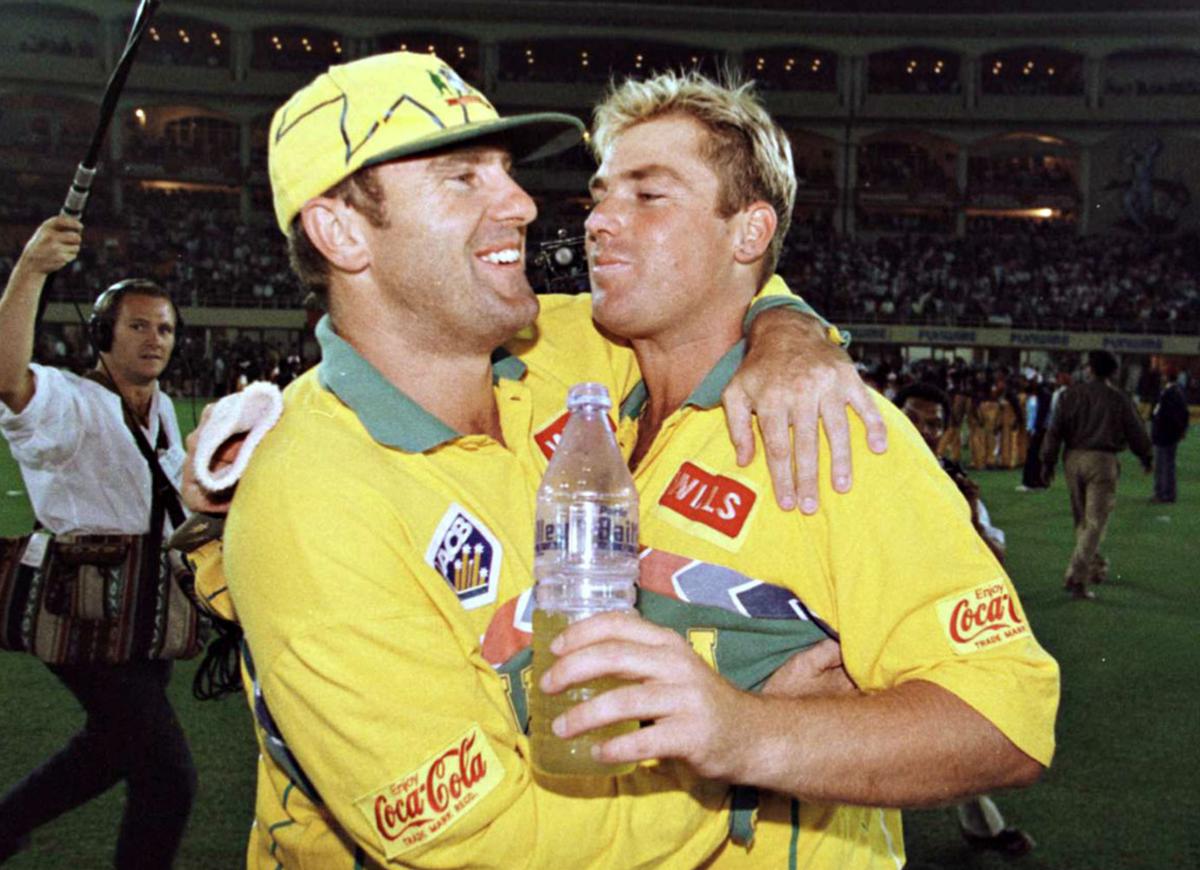
Warne’s wizardry against the West Indies
| Photo Credit:
Getty Images
In this epic semifinal, Australia was reduced to 15 for four inside 10 overs, Curtly Ambrose and Ian Bishop doing the damage. But Stuart Law (72) and Michael Bevan (69) helped Australia make 207 for eight. In the chase, from 165 for two in the 42nd over, West Indies slid to 202 all out with three balls still left, as Shane Warne (four for 36) and Damien Fleming bowled Australia to the final.
Australia ties with South Africa. Edgbaston, 1999
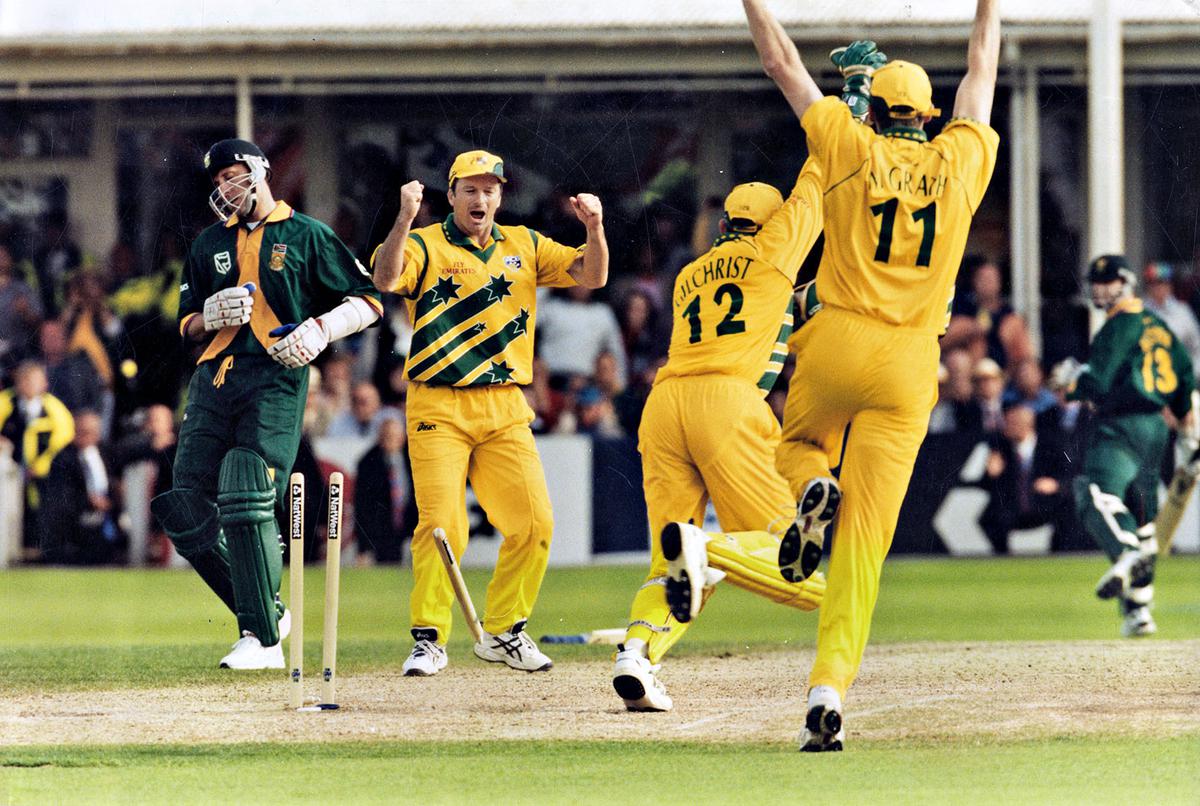
A tragicomic run out
| Photo Credit:
SRIDHARAN N
In the World Cup’s first-ever tie, Australia made a modest 213, thanks largely to the fifth-wicket stand of 90 between captain Steve Waugh (56) and Michael Bevan (65). A 16-ball 31 not out by Lance Klusener took South Africa almost home, but Alan Donald was run out off the fourth ball of the final over. South Africa choked. Not many at the time would have imagined the Proteas would go on to turn choking into a fine art.
Australia beats England by two wickets. Gqeberha (Port Elizabeth), 2003
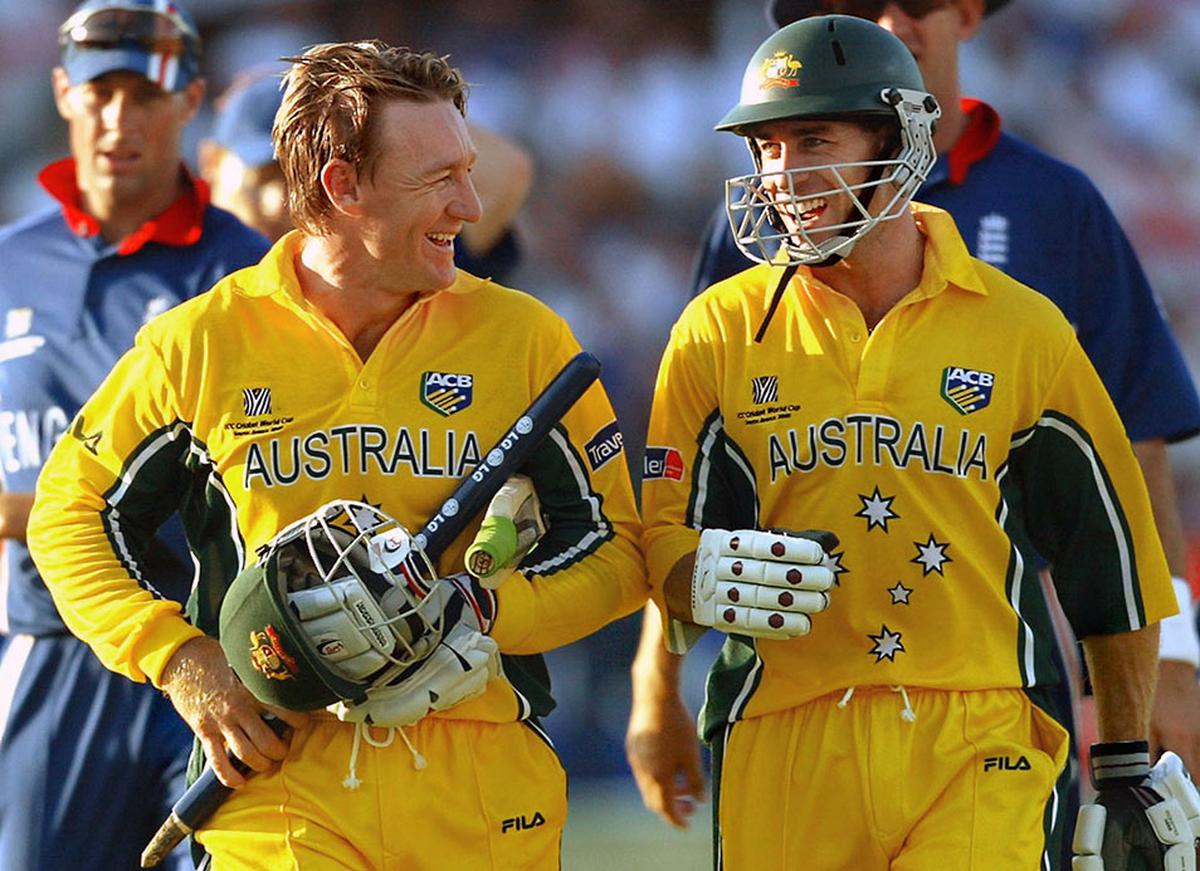
Bichel’s all-round performance in 2003
| Photo Credit:
Reuters
When you register the second-best bowling figures in World Cup history, you deserve to win, even if your batters let you down. If you are Andy Bichel, you make 34 not out, while adding 73 for the unfinished ninth wicket, with that exceptional finisher, Michael Bevan (74 not out). Bichel’s seven for 20 had reduced England to 204 for four eight, but Australia’s chase was wobbling at 48 for four. Bichel hadn’t padded up yet, in all likelihood.
India ties with England. Bengaluru, 2011
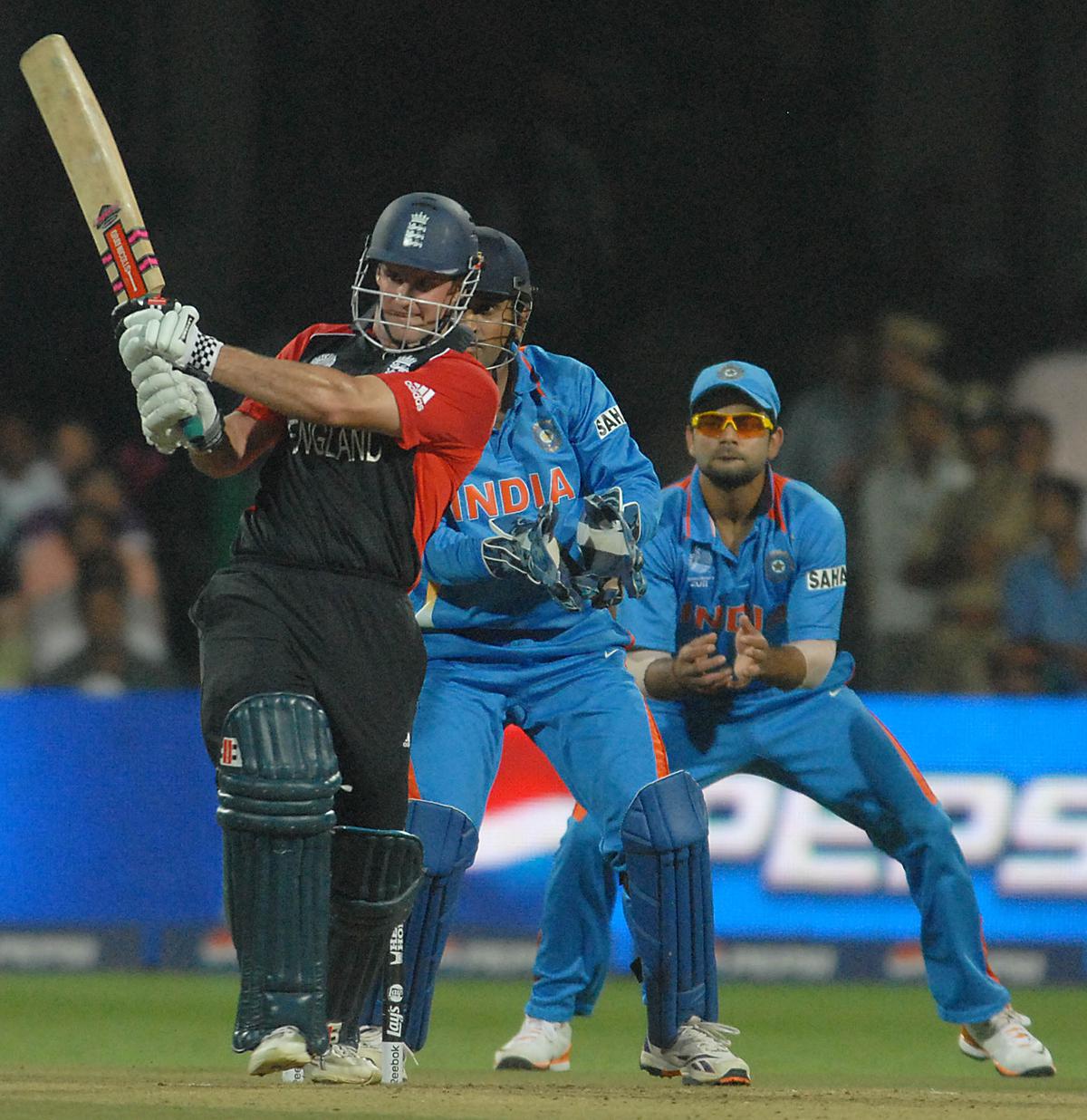
Strauss’ century in the tied game in 2011
| Photo Credit:
G.P. Sampath Kumar
Two extraordinary innings on either side of the dinner break lit up the Chinnaswamy Stadium. Neither Sachin Tendulkar (120, 115b) nor England captain Andrew Strauss (158, 145b) deserved to end up on the losing side. They didn’t. It was the highest individual ODI score by an England batter at the time, Strauss beating his own record, and it nearly gave his team a famous victory, but Munaf Patel gave only one run off the last ball to Graeme Swann.
India beats Sri Lanka by six wickets. Wankhede, 2011
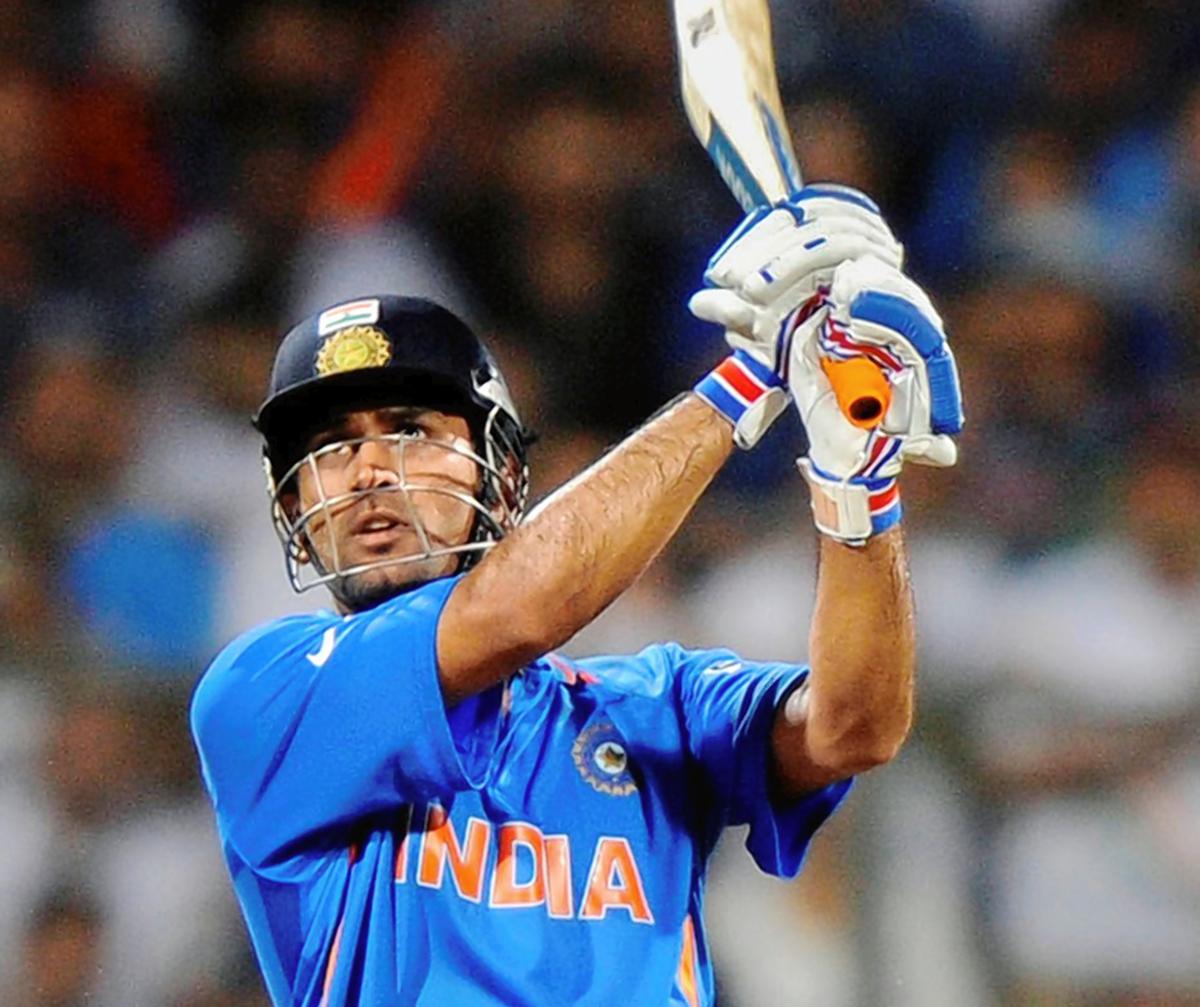
Dhoni’s six sealing the World Cup triumph for India in 2011
| Photo Credit:
K.R. Deepak
No team had won the World Cup at home. No team had chased down in a final a target in excess of 250. For all his genius, Sachin Tendulkar had never won the World Cup. It took a captain’s innings from Mahendra Singh Dhoni (91 not out off 79 balls) — after Gautam Gambhir’s 97 — to change all that. He promoted himself up the door in response to Sri Lanka’s 274 for six, built around Mahela Jayawardene’s delectable 103 not out off 88 balls.
New Zealand beats South Africa by four wickets. Auckland, 2015
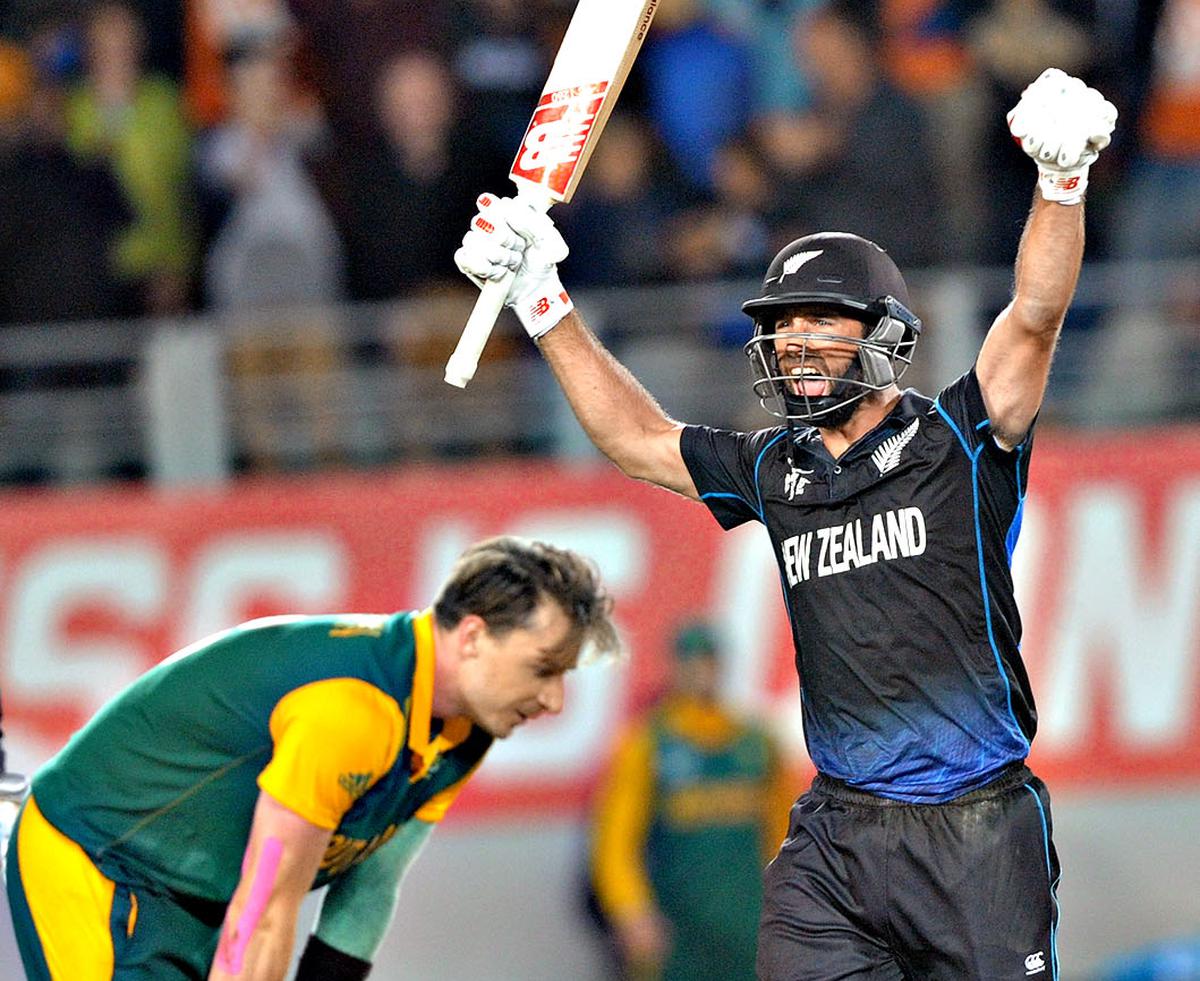
Elliott’s match-swinging knock in the 2015 semifinal
| Photo Credit:
AP
Grant Elliott played one of the great World Cup innings to take New Zealand to its first ever final. At the receiving end was the country of his birth, South Africa, which had set a D/L method target of 298 off 43 overs.
When five runs were required from the last two balls, Elliott (84 not out, 73 balls) swung the great Dale Steyn over long-on for a six — a shot he, or the 41,000-odd excited spectators at the Eden Park — will remember forever.
England ties with New Zealand. Lord’s, 2019
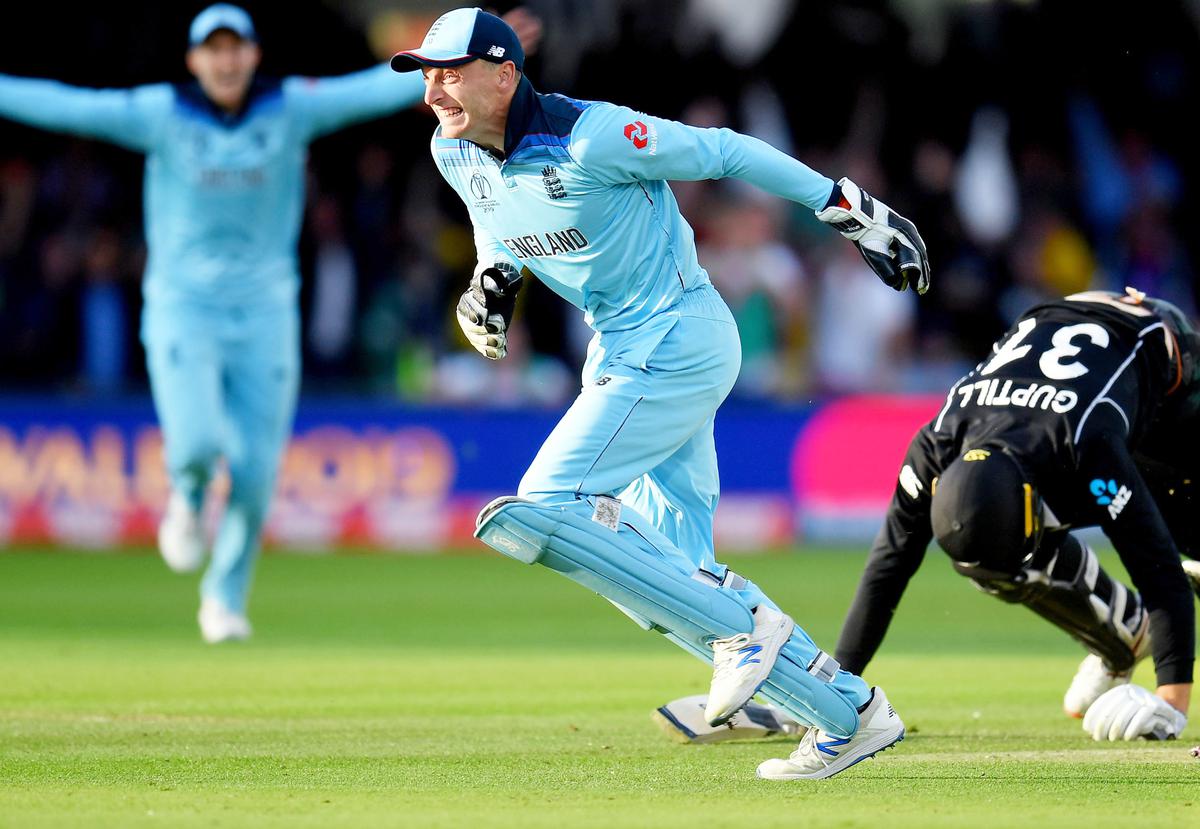
Buttler running out Guptill to give England a fantastic win in the 2019 World Cup
| Photo Credit:
Getty Images
Few World Cup finals – of any sport – have produced as much drama. First, an incredible knock from Ben Stokes (84 not out, 98b) helped the host tie the match; it lost its last wicket off the last ball, chasing New Zealand’s 241 for eight.
In the Super Over, England made 15 for no loss and Jofra Archer defended that score. The match was tied for the second time, but England won its first World Cup, having scored more boundaries.